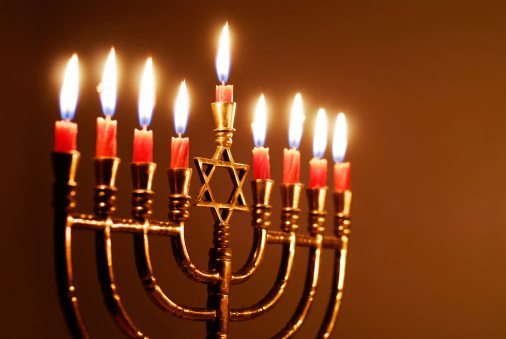The Jewish holiday of Chanukah (the winter Feast of Dedication, also known as the Festival of Lights) is rooted in history.
Zerubbavel, the Persian governor of occupied Judea, had laid the foundation and rebuilt the Temple of God in Jerusalem. Herod the Great, in his quest for personal aggrandizement, razed the Temple constructed by Zerubbavel to the ground and then rebuilt it to become one of the greatest religious edifices in the Roman Empire.
Sandwiched between these two grand construction projects came the Maccabean revolt. Through a series of different events the Temple was desecrated, a Jewish insurrection led by the Maccabean brothers was launched and rededication of the Jerusalem Temple was secured after much bloodshed.
The holiday that we celebrate today recalling these events is called חֲנֻכָּה Chanukah. It comes from the Hebrew verb לַחֲנוךְ Lachanoch, which means, in a slightly different context, to consecrate, to inaugurate and even to educate and train. We can see this connection in the Hebrew word for education (חִנּוּךְ Chinuch) which connotes the meaning of dedicated learning. May this Chanukkah season we rededicate ourselves to all that is holy, right and true.









2 Maccabees 1:9 “We are now reminding you to celebrate the FEAST OF BOOTHS in the month of Chislev.” The problem with this is that it follows in the steps of Jeroboam in 1 Kings 12, which greatly displeased YHVH. Leviticus 23 is very clear, “you shall keep it in the 7th month”. Some claim that Jesus observed Chanukah in John 10:22-23 because it was a “dedication” (Chanukah in Hebrew) and it was winter. However, there are only summer and winter in the bible; summer is months 1-6 and winter is months 7-12. (per their day/night equivalents). King Solomon’s dedication (Chanukah) occurred in the 7th month, which is considered winter. In John 10:22-23, Jesus stood on Solomon’s porch, which, in my opinion, signified a tribute to Solomon’s chanukkah, not the maccabean one.
very interesting. Can you unpack it a bit? Dr. Eli
Dear Dr.: I have a question since a long time ago : Why sometimes is seen with nine arms and candles and other times with seven arms and candles? Is there any difference or meaning at all? Really, I think you could give me the explanation I want. Greetings and better wishes.
Menorah is a seven candle lampstand (stylized tree of life in Eden). The candles kept on burning for 8 days even though the oil was enough only for one day (oil that was not desecrated). Central candle is the candle-servant so we don’t count it. Dr. Eli
Dr. Llizorkin Eyzemberg,Gusto en saludarlo,en relación al tema”Que es el Januca”Esta fiesta judia, me gustaría conocer en que fecha inicia y que fecha termina y actualmente como celebran estas bonitas fiestas.Que DI-S lo bendiga.
Dr Eli,
Thank you so much for explaining the meaning of Chanukkah and the beautiful Menorrah with the nine branches and David Star in middle thereoff. So much meaning in this.
Shalom to you and all in precious ISRAEL, Rita
You are most welcome!